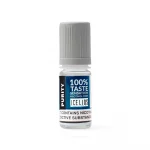A Lot of people are usually interested in how long nicotine remains in the system because their work might require them to test for nicotine—either as a condition of employment or more commonly to reduce the cost of health insurance.
Even though this may seem very unfair, most employers and insurance companies do not know how to differentiate between cigarette smokers and users of nicotine in safer forms, like vaping or even smokeless tobacco.
Nicotine-like products like the nicotine gum which had been approved by the FDA for long-term use may be regarded as a health risk by employers, and result in the payment of higher insurance prices for employees.
Knowing how long nicotine can stay in your system is important because Insurance companies evaluate the presence of nicotine as a reliable indicator that the test subject is a tobacco user or a user of nicotine replacement therapy (NRT) products, which usually implies an ex-smoker or someone who would possibly return to smoking, as research has proven that more than 90 percent of NRT users do.
If you are finding the answers to questions like, “How long does nicotine stay in your blood or urine?” beware that most testing won’t even look for nicotine per se.
Before we tell you more, check out our nicotine pouches, Lyft nicotine UK, and CBD vape with nicotine
For how long does nicotine stay in your body?
Even though many tests can be carried out to measure nicotine in the human body, it is difficult to detect nicotine in the blood after one to three days and in urine after four days. This is why most employers and insurance companies no longer interest themselves in how long nicotine stays in your body. Rather, they test for a substance called cotinine.
Types of Nicotine Tests
Blood Test
There are several tests used to measure cotinine levels. Blood testing is a test that is very detailed and can be used to detect both nicotine and cotinine. It is therefore the most expensive and invasive testing method, so it may not be frequently used as the other methods.
Drawing blood out of your veins would require a trained technician and a visit to a lab. This makes the process expensive and cumbersome for both employee and employer.
The simple positive-or-negative measure that doesn’t quantify the amount of cotinine present in the blood and s test that can specify the level of the nicotine metabolite in the blood serum are the two kinds of blood tests for cotinine.
Saliva Test
Testing using Saliva is the most sensitive, common, and simple testing method. In recent years, many labs and insurance companies have switched to saliva testing. The levels of cotinine that a person’s saliva tests can detect are about one-third as high as those in blood serum and about one-fifteenth of those in urine. The biggest benefit of saliva testing is its ease for all the testers and testees.
Saliva testing for cotinine can also be done by employers using kits supplied by third-party labs. This is carried out when a swab of the person’s mouth is done, and the swab is inserted into a self-sealing container that is shipped to the lab after testing. The results are returned to the employer or insurance company online or by phone. This is less expensive and not time-consuming compared to sending each employee to a lab for blood testing.
Urine test
This is the better test option for detecting low concentrations of cotinine. It is a relatively simple test. The test strip is soaked in the urine sample for a few minutes, and it shortly delivers a positive or negative result.
Hair test
This is more expensive and quite slow. The benefit for scientists studying smoking and nicotine is that hair samples can retain cotinine for as long as three months.





